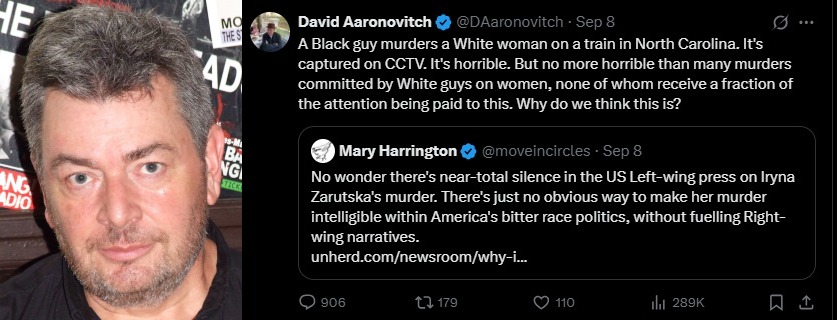On August 17, I published a rather lengthy essay titled “On the Need for Eugenics” in the Occidental Observer, stating my case for a relatively mild and benign form of eugenic policy. This is necessary, I said, because of steady declines in the quality of the human genome that began around the year 1900. Prior to this time, and for all 3 million years of human history, around 50% of all human infants and children died before they reached the age of reproduction—roughly 15 years old. Certainly there were many causes for these deaths, but a key factor was the strength and health of the child; weaker or less-healthy children are more prone to illness, disease, violent death, and fatal injury, and this was nature’s way of removing humans with less-than-optimal genes from the gene pool, leaving the strongest and healthiest to reproduce. While much of this differential mortality was unconnected to genetic factors, it is likely that children with larger burdens of harmful mutations were more likely to die early than those less burdened, helping to stabilize the overall human genome.
But thanks to the Industrial Revolution (which began circa 1700) and modernization in general, advances in medicine, hygiene, nutrition, science, and therapy allow nearly everyone born in the developed world to survive to reproductive age. The “child mortality” (not infant mortality) rate of 50% fell to about 40% in 1900 among Western nations, and then dropped precipitously to 4% in 1950, and then to 0.4% today—a reduction by a factor of 100. Today, 99.6% of all babies in the West survive to age 15, when they are biologically capable of reproducing. Virtually everyone survives, regardless of their genetic well-being.
The problem is that, when everyone survives, we see an increase in the probability that harmful genetic variants are passed along to subsequent generations. Due both to natural processes and to artificial sources, human genes undergo mutations at a fairly predictable rate. Most of these mutations have no effect or only mildly negative ones, but about 2% are more substantially detrimental. When nearly everyone survives, and a large enough fraction of people have children, these “deleterious mutations” accumulate in subsequent generations, leading to growing burdens of harmful genetic variants. Without a purifying selection process, the number of negative mutations increases in each generation, such that after just three or four generations, concrete negative effects become apparent, potentially including declines in physical and mental health, fertility, and intelligence (the eminent geneticist Michael Lynch [2010, p. 966] estimates “serious” consequences for human fitness from mutation accumulation in modern human populations after “approximately six generations” of relaxed selection). I presented some evidence that all of these things were happening, and that they were at least consistent with the effects of mutation accumulation. If the process continues unabated into the future, before long, there will be serious repercussions affecting, directly or indirectly, nearly the entire human race.
Therefore, I said, we need to take action now to introduce an artificial selection that partially mimics the past natural selection: in essence, a eugenic policy in which the least healthy or most defective 50% of people are discouraged from reproducing. Instead of dying, they can be disincentivized from having children, or, in the worst cases, sterilized; but not killed. We can be much kinder than Mother Nature—who is a truly ruthless old dame when she wants to be.
This, in short, was my piece. It was bolstered by some supportive claims from the ancient world and from a few modern-day geneticists whose work indicates that humanity faces a potentially very grave threat, including that we might descend into a “great planetary hospital,” a world in which “everyone would be an invalid.” I must stress, however, that as far as I can tell, none of the scientists cited in my last piece or this current one supports eugenics; and indeed, many explicitly oppose it (e.g. Henneberg, You, Woodley, Sarraf, and Peñaherrera-Aguirre).
The Unz Critique
This original essay ran in TOO for a few days and was quickly picked up by Ron Unz for his aggregator site Unz.com. My posting there drew hundreds of comments, including, unusually, many from Unz himself—all critical, some hyperbolically so. Rhetorically speaking, he was emphatic: “I’m extremely skeptical about the analysis”; “filled with total rubbish”; anyone who would buy the genetic determinism argument “is simply an idiot”; and so on. And on: his total comments are pushing 9,000 words, whereas my “very long” essay was only some 7,500 words. Well, everyone is entitled to their opinion, I suppose, especially when you own the website.
But if Unz wants to convince readers of the foolishness of my piece, rhetoric won’t do it; he needs to make real counterarguments. So, let’s see what those are. I will review his substantive points in order of appearance, except for IQ issues which I defer to the end. My replies follow each point:
- “While dysgenics likely is a problem…it’s a relatively slow problem, probably operating over several generations.”
The question is, how many generations? Lynch (2016: 873) says we can expect “notable changes in average preintervention phenotypes…on a timescale of a few generations, i.e., 100 years.” This is the estimated onset of problems due to accumulated mutations; full effects, he suggests, won’t be felt for “two or three centuries.” Notably, Unz never once mentions Lynch or his claims; apparently he is more comfortable refuting me than one of the most illustrious living geneticists. (An important point: I am not inventing these claims. Rather, I am drawing from experts in published academic journals, quoting them, and making plausible conclusions.)
I now have more information and more support for my views. A team led by Maciej Henneberg published some relevant papers a few years ago. Consider W. You and M. Henneberg, “Cancer incidence increasing globally” (2017). They studied rates of 27 kinds of cancer over 184 countries, determining that 12 cancers were likely due to environmental sources (viruses, toxins) and 15 were primarily genetic, i.e. correlated with relaxed natural selection and accumulated mutations. At the outset, they note that “mutations are more common than previously thought,” and that “multiple mutations may accumulate in genomes over time spanning just a few generations.” They continue:
When selection against a certain mutation does not operate, the frequency of mutated alleles doubles every generation. The mutation load is directly proportional to the mutation rate, and inversely proportional to the rate of selection. Thus, when selection rates approach zero, mutation load approaches infinity. … [There is] a real possibility of deterioration of biological integrity of human organisms, observable in the time of a few generations in most advanced societies. (pp. 140–141)
Again we see “in the time of a few generations,” that is, very short timeframes. And if the frequency of mutated genes “doubles every generation” when selection is blocked, then indeed we have a nonlinear increase in mutated genes—more on this below.[1] Nonlinear effects also may appear because “interactions between alleles of various loci may magnify mutation rates,” i.e., via positive feedback.
In any case, rates for all cancers, all ages, are shown to correlate strongly with relaxation of selection—see their Figure 1. As mortality rates from birth to age 50 approaches zero, as they do today in most developed nations, the degree of correlation with cancer rate increases exponentially. “The association between Is [degree of selection] and cancer incidence was strong and significant… [and] stronger in upper middle economic classification” (p. 151). Correlation is not causation, of course, but there seems to be a real possibility that accumulated mutations have a noticeable and detrimental effect on human health—in a few generations.
Anyone who believes that genetic/dysgenic factors explain these gigantic changes in American health [obesity, diabetes] over merely the course of a couple of generations is simply an idiot.
I bring to your attention two studies: First, “Worldwide Increase of Obesity is Related to the Reduced Opportunity for Natural Selection” (Budnik and Henneberg, 2017). The two authors correlated data for 159 countries with their index of relaxed selection. They hypothesize that one can explain “the rise in obesity by recent changes in the operation of natural selection” (emphasis added). “During the last century”—hence, since circa 1900—“the opportunity for natural selection through differential fertility and mortality has been decreasing very substantially, while it has been found that de novo mutations occur at greater rate than previously thought and the mutation load is substantial.” Thus the time frame under discussion is just a few generations.
They found that “regression of obesity prevalence by country on Ibs values per country is an exponential function, with correlation coefficient 0.61.” Therefore, the more modern, more ‘relaxed’ nations—the ones in which virtually every baby survives to childbearing age—have more obesity. And given that obesity is strongly genetic (up to 70% heritability), this is consistent with a link between accumulated mutations and obesity—in just a few generations. Evidently Budnik and Henneberg qualify as “idiots” for merely considering this possibility.
Second study: “Type 1 Diabetes Prevalence Increasing Globally and Regionally: The Role of Natural Selection and Life Expectancy at Birth” (You and Henneberg, 2016). Similarly to the above, a study of 118 countries showed a strong and significant correlation between relaxed selection and Type 1 diabetes. The piece opens thusly: “Type 1 diabetes (T1D) is an autoimmune disease with a strong genetic component.” As to environmental causes for this disease, the authors are dismissive: “It has been postulated that environmental factors may be able to trigger an autoimmune [reaction], however, these environmental factors are [merely] circumstantial”.[2]
Their chief finding, though, is this: “Globally, TID [Type 1 diabetes] is noted to be exponentially [nonlinearly] related with Ibs” (r = 0.713, R2=0.53). As the authors explain, “Overall, the operation of natural selection on contemporary populations is declining due to modern medicine [since circa 1850]. … Although T1D can be fatal, the majority of genetically-predisposed people do not develop T1D. This allows for accumulation of genetic predisposition in human populations. This accumulation will increase when fewer persons who developed a disease would die.” Again, correlation is not causation, but this is the first sign that causal factors are at work.
And the time frame? Reduced selection, they say, is a product of “modern medicine,” namely, insulin, which may have been “boosting T1D genes accumulation and prevalence of T1D.” “Several generations have benefited from insulin since it was discovered and became available in the early 1920s [!].” “Reduced natural selection boosted by insulin treatment of several generations may have enabled cumulative effect of TID genes frequency in human population to occur quickly and to be noticeable for a couple of decades.” Therefore, their “several generations” really means, three or four generations, because insulin has only existed for 100 years. And if it was noticeable “for a couple of decades,” i.e., since 2000, then the timeframe was only 80 years.
We have solidly-established biological mechanisms indicating that fructose consumption is directly related to the personal health problems under discussion.
There is a difference between Type-1 diabetes and Type-2; the former appears mostly in childhood and is more strongly genetic, while the latter occurs later in life and is a combination of genetic and environmental factors, including diet, which may indeed be the stronger effect. Thus we cannot speak of “diabetes” generically, and neither Unz nor I made this distinction previously.
Regardless, I contend that mutation accumulation is doing considerable harm, alongside the confounding environmental factors, which may be helpful or harmful. And the data supports this claim.
I’d guess that most of the changes in human characteristics discussed in this long article are 90–95% environmentally-determined.
In light of the above, call me skeptical.
Rethinking the IQ Question
The remainder of Unz’s substantive critical remarks center on the question of IQ. In my original paper, I argued that, according to Lynch and others, negative genetic impacts on fitness due to accumulated mutations should begin to appear in “a few generations,” that is, around the 1980 to 1990 timeframe (given that the fall-off in child mortality began around 1900). As I explained, the well-known Flynn Effect shows increasing IQ test scores from circa 1900 to about 1980, at roughly 3 IQ points per decade, when they began to level off. We furthermore have evidence that, beginning around 1990, an “anti-Flynn” effect took hold, causing a decline in IQ scores of about 1 point per decade. While again not constituting proof, the timing is suspiciously coincidental: just when we expect negative genetic effects to appear, IQ test scores flatten out and then decline.
But Unz will have none of this:
“I’m extremely skeptical that innate IQs could have possibly shifted by anything like 10 points in a century…”
The Flynn Effect “must be some sort of testing artifact.”
“We’re seeing better test-taking performance on IQ tests, probably due to better education, or more familiarity with tests, or greater intellectual stimulation, or something. Test scores have gone up but ‘real intelligence’ probably hasn’t.”
The Flynn Effect is “hardly consistent with [an alleged] huge decline in ‘real intelligence’ [since the 1920s].”
“The alleged evidence of declines in intelligence are only found in very obscure metrics such as color discernment.”
A few thoughts here: First, very few serious psychometricians have ever claimed that “innate IQ” (or the g-factor; see below) actually increased in line with the Flynn Effect. Second, there surely are some testing effects that have changed over time, including such mundane issues as an increased willingness to guess on multiple choice tests, which do seem to have increased scores. Third, education is probably a key driver of the Flynn Effect, as are artificial score-improving developments like increasing test familiarity. On the other hand, there are substantive correlates of the Effect indicating that facets of intelligence actually have increased. Fourth, there are in fact a number of indicators of a decline in intelligence, all unified by reference to an underlying or “innate” cognitive ability.
Unz attacks my numerical claims. I cited sources claiming that newborns contain roughly 100 ‘de novo’ or new mutations, independent of, and in addition to, any “germline” mutations that they inherit from their parents (germline mutations occur in the sperm or eggs of the parents, and thus are passed on). I also cited the fact that only about 2% of the de novo mutations are substantially deleterious.[3] When I then gave a hypothetical example of 100 or 200 mutations in a newborn, Unz assumes I meant 100 or 200 deleterious mutations when in fact it would only be 2 or 4 (the 2% figure). “Skrbina dropped a factor of fifty!” he cries. But this is an irrelevant complaint. If the total mutations are accumulating, so too are the 2% that are harmful (to the extent that selection is too weak to purge them). If the total is increasing linearly or nonlinearly, so too are the 2%. That said, my example was unclear and technically incorrect, and thus I retract that one paragraph.
Apart from this, Unz has a number of misconceptions about intelligence and IQ, and my initial essay did little to clarify the situation, so I will try again here—bearing in mind that I am neither a geneticist nor a psychometrician, but that I do have an advanced degree in mathematics and thus am generally able to analyze technical papers.
Intelligence is a complex characteristic, something that can be both integrated and differentiated. Thus, researchers commonly speak of a ‘g-factor,’ where the ‘g’ stands for ‘general intelligence’; it is a fundamental cognitive ability that underlies many aspects of intelligence. We can think of ‘g’ as the core of learning and problem-solving ability that most people intuitively equate with intelligence per se.
IQ, or intelligence quotient, is a test score summarizing performance on typically a large number of mental ability measures. Indeed, it is a single score reflecting various abilities, which can include abstract reasoning, quantitative ability, verbal knowledge, memory capacity, and spatial manipulation skill. There is a very strong correlation between IQ scores and general intelligence (‘g’) among individuals in a given population, such that people with higher IQ scores have higher general intelligence. But the story becomes more complicated when we consider variation in intelligence and IQ test scores of populations over time.
As is well known, intelligence (whether indexed as IQ score or ‘g’) is affected by both genetics and environment. In adults, it now appears that about 80% of variation in IQ-test performance is attributable to genetic factors and the remaining 20% to variation in environment and measurement error. But different aspects of intelligence are subject to different influences, and it is important to take them into account.
Perhaps the best available model for understanding variation in intelligence over time is the “co-occurrence model.” This fits well with most of the data we have today and also can explain a number of paradoxes that have arisen (see Egeland 2022). In the co-occurrence model, we can split intelligence along 2 axes:
1) general (g) vs specialized (s).
2) heritable/genetic (h) vs environmental (e)
Combining these two axes yields four components of intelligence: general/heritable (g,h), general/enviro (g,e), specialized/heritable (s,h), and specialized/enviro (s,e). It is theoretically possible for these components to vary independently of one another.
Furthermore, and apart from this, we can identify four factors affecting intelligence over the past 200 years:
1) Environmental improvements (nutrition, medicine, therapy, educational techniques, etc.), since ca 1800.
2) Declining child mortality and concurrent mutation accumulation, since ca 1900.
3) Increasing environmental toxins and mutagens.[4]
The fourth factor was entirely neglected in my original piece, which is unfortunate, considering that it is perhaps the most significant. Much genomic evidence is indicative of positive selection for intelligence in the recent human past (from at least 30,000 years ago up to the time of large-scale industrialization); that is, smarter people generally left more offspring. Smarter people were better able to gather resources, to fend off threats, and to anticipate future events, leading to more access to mating partners and to more surviving children.
As industrialization began first in the UK, and then in parts of Europe and America, the pattern of selection for intelligence began to reverse, partly due to increasing availability of contraception which reduced the fertility advantage of smarter people, who were more likely to control their fertility than their less-intelligent counterparts. Eventually, higher intelligence became associated with lower fertility. This process accelerated through the twentieth century, especially after the 1960s, and is very significant today, as the most intelligent couples defer childbearing to obtain advanced degrees, to progress in their careers, or simply because they prefer one or two children to three, four, or more. Today, the less intelligent have more surviving offspring than the more intelligent, and this has a negative effect on intelligence at the population level.[5] Thus, we may identify a fourth factor:
4) Selection against intelligence, since ca 1850.
Now, of the four factors, only (1), environmental improvements have been positive—but strongly so. In particular, these improvements strongly influence the specialized/environmental component of intelligence. This likely explains the bulk of the Flynn Effect, even though there is solid evidence that other factors, such as increased guessing, test familiarity, and the like, artificially contribute to rising IQ test scores.
The other three factors—mutation accumulation, toxins and mutagens, and selection—have negative effects on intelligence, with selection apparently being the most potent of the three. Notably, genetic factors dominate here, making the consequent loss of intelligence harder to undo.
For most of the twentieth century, factors contributing to the Flynn Effect swamped the dysgenic trends. As a result, IQ scores showed a dramatic average rise of about three points per decade, across all countries that even partially benefitted from industrialization. This occurred even as the negative factors began to suppress the general/heritable component of intelligence.[6]
Until the 1980s. Around that time, it seems that factors allowing further boosts in the spcialized/environmental component became harder to sustain. The Flynn Effect has generally been slowing and even reversing in the developed world (“anti-Flynn Effect”), on a scale of about 1 point per decade or around 3 points per generation. This decline may be due to worsening quality of education and intellectual stimulation; in any case, the causes are likely multi-faceted and in need of further research. Furthermore, it is conceivable, but not yet demonstrated, that falling levels of general intelligence (‘g’) due to adverse genetic changes are weakening the ability of wealthy nations to sustain the beneficial environments that promoted the Flynn Effect in the first place. This, at least, is the best account for the data that we have.
A strong piece of confirmation comes from a 2023 paper by Mingrui Wang, “Estimating the parental age effect on intelligence.” Parental age is known to affect a child’s intelligence, and under the mutation accumulation thesis, the child’s IQ should decline as parents age and their sperm and eggs undergo periodic genetic mutation (sperm more so than eggs).[7] The data, however, typically shows an inverted-U pattern, where the child’s IQ is low for teen parents, rises until parents are in their 30s, and then declines again. Wang theorized that children do, in fact, undergo a steady decline in intelligence as parents age, but that the ‘environmental’ benefit of parents in their 30s—which is presumed to be stronger than for teens or old parents—masks this decline.
Wang thus controlled for the “polygenic score”—a genetic index of intelligence unfortunately accounting for only a small percentage of variance in the trait—to remove the confounding effects of parental intelligence and to isolate the effect of rising parent age. After this adjustment, Wang showed that, indeed, child IQ steadily declines with parental age, for both father and mother. (Message: have your children while young!) Even at age 30, there are considerable mutations from both parents, and these accumulate over time. Thus, if 30-year-old parents have kids who in turn become 30-year-old parents, and so on, we will see a steady, generational genetic decline in IQ. Even at these modest ages, says Wang, “[the data] suggest a 7.5-point generational [IQ] decline in genetic variants underlying intelligence.”
Wang does offer one qualification, namely, that correcting for birth-order effects may reduce the estimated declines. But they would remain substantial: “it would still suggest a 2.4-point generational [IQ] decline” deriving from genomic mutation. However, it is unclear, says Wang, whether birth order should be corrected for, and if not, then it could be the case that intermediate results would obtain, i.e., something between 2.4 and 7.5 points per generation. A bad outcome, in any case.
In sum: Between, say, 1850 and 1980, falling ‘g’ in the industrialized West occurred alongside environmental factors driving the Flynn Effect. Since about 1990, however, while selection against intelligence and ongoing mutation accumulation are likely occurring, capacity to sustain the Flynn Effect has been weakening. At a personal, individual level, this may not mean much; the generation of children today have an average IQ of around 97, compared to the prior generation’s mean of 100. Individual families would not notice anything amiss, but teachers who deal with larger numbers of children will likely detect a downward shift. But when today’s children grow to have children, that new generation will likely be in the range of 94 IQ—a noticeable decline from today’s adults. On the scale of entire nations, or entire civilizations, this will certainly have an effect—in just a few generations.
The implications are serious. Falling intelligence may well reduce the Western world’s ability to manage complex problems such as mutation accumulation itself, a process that could accelerate in the future. The negative factors compound and interact, as Lynch noted: “It is therefore plausible that the human mutation rate is destined to slowly increase toward exceptional levels,” leading to “to a sort of positive feedback loop” in which adverse effects appear rapidly and nonlinearly.
Genomic degradation affects more than intelligence, of course. It will impact every aspect of fitness, including fertility and physical and mental health. Adverse trends in, for example, fertility, obesity, cancer, diabetes, Parkinson’s, depression, suicide, while likely driven substantially by environmental factors, may, to a degree that is currently hard to quantify, reflect the falling genetic quality of human beings—hence all the issues I mentioned in my first essay.
A Look at the Big Picture
Finally, consider a few comments by the geneticist Alexey Kondrashov, as published in his book Crumbling Genome: The Impact of Deleterious Mutations on Humans (2017). He notes at the start the figure of roughly 100 de novo mutations in newborns, remarking that, rather than just 2% of these being deleterious, that actually around 10% have negative effects: “Despite of the all elaborate mechanisms that a cell employs to handle its DNA with the utmost care, a newborn human carries about 100 new (de novo) mutations, originated in the germline of their parents, about 10% of which are substantially deleterious” (p. ix).
He continues:
Several percent of even young people suffer from overt diseases that are caused, exclusively or primarily, by pre‐existing and de novo mutations in their genomes. … Milder, but still substantial, negative effects of mutations are harder to detect, but are even more pervasive.
Later in the book, he contemplates a future in which mutations accumulate over generations, leading to potentially tragic consequences. Kondrashov is admittedly uncertain about the future (obviously), and he sketches out scenarios for the best case and the worst. Best case: mutations are balanced by selective forces and therefore there is no accumulation moving forward. Under this scenario, “deleterious alleles will never make their way into the top 10 problems facing humanity” (p. 231).
But this is more than offset by a negative possibility:
According to the pessimistic scenario, … [s]election against deleterious alleles is deeply relaxed under industrialized environments and cannot prevent accumulation of all but the most deleterious mutations. Thus, the mutational pressures on many traits will likely increase with time. As a result, frequencies of overt diseases, in particular those caused by impaired functioning of the brain, will increase rapidly, and the mean values of some key traits which characterize human wellness will decline by ~30–40% in the next 10 generations [thus, 3–4% per generation], making phenotypes that currently correspond to the bottom 10–20% of the population a new norm. Some characteristics of the population, such as the proportion of people with IQ above 140, will decline even more.
Soon, improvements of the environment will become unable to mask these declines. Thus, after only ~10 generations, societies will begin to crumble, and preventing this is as important as dealing with climate change and habitat loss.
And which outcome is more likely? “The truth must be somewhere in between, and, I believe, is closer to the pessimistic scenario.”
Unz seems to believe that it is nonsensical to suggest that mutation accumulation could be contributing substantially to reductions in human health and fitness; but again, geneticists as eminent as Lynch and Kondrashov expect real harm from this phenomenon to appear on a relatively short timescale. It is unwise, given our current state of knowledge, to complacently assume that the effect of mutation accumulation on these trends is so minor as to be barely worthy of our consideration.
There are many other points I could make, of course. Consider China: Are they suffering the same effects as shown here, or are they not? China followed a very different social and economic trajectory than Europe; their industrialization was comparatively much-delayed, and even as late as 1950, over 80% of Chinese were still farmers. China’s modernization formally began only in the latter half of the twentieth century. Thus, for instance, China did not experience a decline in child mortality circa 1900, but only much later. Child mortality (to age 5) remained high through 1930, began a slow decline, then dropped off dramatically from 1950 onward—a full 50 years later than Europe. Therefore, we should expect a corresponding period of time to elapse before evidence of increasing mutational load is as apparent in China as it is in the Western world.
Suffice it to say that Unz has a lot of work to do to establish that my piece was “total rubbish.”
Alexis Takes His Shot
Unz’s critique was followed a few days later by a truly impressive critical essay of some 27,000 words by a Black Catholic journalist and author, Jonas Alexis. It appeared on 30 August on Unz.com. Despite the massive length of this piece, my response will be briefer than the above.
It is clear that Alexis takes personal affront with my position, which is not surprising; as a Black and a Catholic, he has two intrinsic reasons to oppose eugenics.[8] But to his credit, he generally avoids these as bases for his critique; in other words, he does not use theological arguments against me, and only tangentially does he employ “White identity” assertions for his case. Unfortunately for him, the arguments that he does use fail miserably.
He begins with a host of slanders and insults against me and against anyone aligned with me. He speaks of my work as representing “mental gymnastics,” “selective citation,” “omission of evidence,” “deliberate misrepresentation,” “avoidance of scholarly responsibility,” “cherry-picking,” “intellectual solipsism”—we get the point. Indeed, I am, he says, just another of many writers who “reveal themselves to be structurally hollow, methodologically flawed, historically irresponsible, and philosophically worthless.” However, such rhetorical complaints won’t suffice.
Alexis then attempts a little ‘poisoning the well’ fallacy by declaring eugenics to be associated with “essentially Talmudic characteristics”; if the evil Jews are eugenic, then it must be a bad thing! Or so he implies. I’m with him on the Talmud, but there is nothing there that resembles the eugenic system I advocate. The Talmud declares non-Jews to be less than human, to be virtual animals, and thus they can be maltreated, abused, exploited, and even killed if it serves Jewish interests.[9] This, surely, explains the mindset of present-day Israelis who feel they can mass-murder Palestinians in Gaza with impunity. As sympathetic as I am here, this has no bearing on my arguments.
This is followed by an attack on my scholarship. Alexis cites a bare list of some 25 books on eugenics, lamenting that I have offered “no sustained engagement” with this body of work. Indeed—nor did I cite any of the 200+ books on the subject published just since the year 2000. That, of course, would have been entirely inappropriate for a short, popular essay on the topic, but I did offer a few thoughts along the line that virtually all such works are anti-eugenic. Should a reader care to peruse those 200 books and let me know where I am wrong, I would welcome the effort.
More seriously, Alexis then refers to my citations of Plato, Seneca, and Plutarch in favor of a form of eugenics such as they had at that time—one which involved passive or active infanticide. My point, of course, was that eugenics was seen as necessary in the ancient world, not that infanticide is a good idea. But Alexis jumps on this issue, accusing me of endorsing similar policies in the present day. To the contrary: I argued for a rather benign and sympathetic treatment for inferior or defective infants:
For infants and children to age 15, actions would be very limited. Their very immaturity would preclude much in the way of evaluation. Genetic testing is one obvious exception, and this could be performed on all children with the goal of identifying genetic predispositions for certain diseases or disabilities. Otherwise, the main priority with this group would be to give all the best possible environmental conditions for growth, learning, and healthy development. Upon reaching the age of 16, all would then undergo the standard evaluation process.
Nowhere do I suggest or imply infanticide. It is simply unnecessary, given present-day knowledge and capabilities.
Worse, though, is when Alexis accuses me of somehow promoting “removal,” “elimination,” or “extermination” of the unfit. This is ludicrous and utterly unsubstantiated by anything I wrote. He seems to hold a kind of cartoon-image of eugenics, like evil Nazis slaughtering the subhumans, as depicted in any number of Hollywood propaganda films. Once again, this is nowhere stated, suggested, or implied. Under no conditions do I advocate killing or harming anyone.
Alexis next goes into a lengthy discussion of Kantian ethics in an attempt to prove that eugenics is incompatible with that view and therefore unethical. As one who has taught ethics at the university-level for two decades, I know something of the subject matter. Academically speaking, there are today three primary systems of ethics: virtue ethics (associated with Plato and Aristotle), utilitarianism (associated with Bentham and Mill), and deontological or duty-based ethics (associated with Kant).[10] Each has their strengths and weaknesses, and none are trouble-free.
And yet somehow, Alexis latches on to Kantian ethics, thrusting it to the forefront as the definitive and only correct form of ethics. Worse, he attempts to use Kant’s categorical imperative against me and against eugenics. (The categorical imperative is a modern form of the Golden Rule: act only such that you can universalize your maxim or policy for action. Or alternatively, treat others as ends and not merely as means.) If you’re going to kill someone, says Alexis, you are not treating them as ends! And, you can’t universalize killing! Nice try, except (a) I never suggested or implied any killing, so this argument fails on its face; and (b) such ethics are guides for individual, personal action, and not intended as guides to social or group ethical actions. My proposed eugenic policy is a social-level system intended to forestall the worst effects of genetic degradation and to promote the best human qualities. Thus his argument fails on two grounds.
Furthermore, eugenics is eminently compatible with both utilitarian (“greatest good for the greatest number”) and virtue ethical approaches (witness Plato), if he wants to press that line of thinking. There is clearly a strong ethical argument for saving humanity from genetic degradation and social collapse—unless, that is, you hold to a comical, Nazi-esque vision of mass murder.
Alexis then treats us to a sprawling discourse on a vast range of semi-related people and topics, including (but not limited to) Darwin, Malthus, Galton, British child labor in the 1800s, Karl Marx, the Bolshevik Revolution, White identity, “White trash,” Teddy Roosevelt, Madison Grant, anti-Catholicism…wow, and I thought this was a discussion about my little paper on eugenics. It’s all interesting stuff, mostly history, but best saved for another day.
One issue of particular concern to Alexis is the problem of intelligent psychopaths, such as those running our government and our military. If we select for intelligence, he asks, won’t we produce even more intelligent psychos? And don’t such people pose a greater risk to society than any “unfit” ones? Agreed, we don’t want such types running our society, but any eugenic scheme, even the most effective and far-sighted, cannot hope to stop all such people from coming to power. I will elaborate below, but in my proposal, a panel of skilled elders assess youth upon reaching, say, age 16 and determine their overall fitness using a range of characteristics; intelligence is only one, and pathological tendencies would certainly be another. Any budding “intelligent psychopath” would not be killed, but rather, discouraged from reproducing, and probably given help, as appropriate. At the very least, he would not be passing along any psychopathic genes.
But this touches on a broader point: Eugenics, even the best system, cannot solve every problem in society. It cannot end sickness and disease, it cannot end crime, it cannot guarantee peace and happiness for all. All it can do is to act to boost the quality of our collective gene pool by promoting our best qualities and minimizing our worst. And this alone makes it worthwhile.
As a final matter here, I would note that, despite his extensive verbiage, Alexis offers precisely zero treatment of my central point: that industrial society has, through relaxed natural selection (low child mortality) and a variety of mutagens, set us on a course for a steady degradation of the human gene pool, leading to a calamitous future unless action is taken soon. Alexis utterly ignores the science, the data, and the claims by the geneticists that I cited. Apparently, he has no use for science at all. This is his right, of course, but then we have no obligation to take him seriously.
Elaborating on an Action Plan
I closed my original essay with some brief thoughts on how a benign eugenics system might be structured. It was just an outline, of course, and was only intended to point in one possible direction. But this plan brought down more criticism from other readers, especially on Unz.com. So let me respond to a few concerns.
I think we can identify three basic categories of eugenic policy: (1) centralized policy established at the federal level, (2) personal action by individual people or couples, and (3) local, decentralized policy, but with federal support. The first category rightly prompts concerns about a “self-appointed elite” (Alexis), or a bunch of Bill Gates or Kamala Harris or George Soros types, who determine which genetic qualities get promoted and, in the most extreme cases, who lives and who dies. Such a notion rightly makes our skin crawl, and is certainly nothing that I would ever recommend. No government bureaucracy, no federal politicians, can ever be trusted to make wise decisions along this line.
The second category is growing in popularity, and goes by various names, including ‘embryo selection’ and ‘designer babies.’ This can potentially take a few different forms. Couples can extract several eggs from the woman, fertilize them with the man’s sperm, and then test the embryos for various genetic markers (intelligence, disease susceptibility, etc.), and then select the preferred one for implantation into the woman’s uterus. Or as a variation, the woman can select donor sperm from high-quality men, preselected for one or more qualities, and fertilize and implant. Or, in more advanced versions, couples could use a CRISPR-type technology to directly add, remove, or alter the genetic makeup of a developing embryo before implanting. This is a high-tech solution to a technological problem, and if the past is any guide, it will almost certainly fail in the long run. In any case, this is not what I recommend either.
My preferred approach is something like category (3): a very localized, very decentralized process by which local panels of elders who are skilled, knowledgeable, and aware of all the relevant matters of race, ethnicity, and genetics, are charged with assessing youth upon reaching age 16. This is necessarily a local process. Consider the numbers. In the US today, there are about 4 million boys and girls aged 16, with the average state having 80,000 such individuals—all of whom would need to be assessed in a year, on my view. This implies that some 6,600 would be evaluated per month, a process that would likely require around 100 panels, each assessing 60 to 70 youths per month, for the average state. That’s a lot of evaluation; it is certainly far more than any handful of “self-appointed elite” could act on.[11]
I suppose our elite could try to legislate a certain outcome by prioritizing certain characteristics, like intelligence if they needed more scientists and engineers, or physical strength if their armed forces were found lagging. But an essential aspect of the system would have to be a firm “hands-off” condition, keeping federal bureaucrats, politicians, and (more importantly) their donors far away from the specifics. The government’s role would be to acknowledge the necessity of such a process, to support it in principle, perhaps to help fund it—and then stay out of the way.
Obviously, local panels, even within a given state, would have a wide variety of ranking metrics; subjective evaluations, such as beauty or physical attractiveness, would vary considerably. So be it. I believe that the situation will become severe enough that almost any process, almost any selection on almost any grounds, will be better than the alternative—doing nothing. Even the sketchiest panel from the poorest, most backward rural area, could pick out those youths with higher intelligence, better looks, or superior health. Yes, such a process could potentially get hijacked by corrupt locals for nepotistic or other self-serving purposes. Even under the best circumstances, it is an imperfect process; but again, an imperfect process is better than nothing.
And this brings me to my final point. For all my critics out there, my question to you is: What is the alternative? Doing nothing? Given the accumulating evidence, this seems risky in the extreme. Are we to just wait as ailments increase, abilities decline, society decays, and in the worst case, an entire civilization is put at risk? How long? And then what? The longer we wait, the harder it will be to correct our path.
The only other option is an ultra-risky high-tech solution: genetic engineering of our fetuses. Even our politically-correct scientists, who can barely stomach the consequences of their own research, are compelled to state that genetic engineering is our “only” option—because the alternative is a “morally reprehensible” system of eugenics.
Actually, there is a third alternative: accelerationism. For the pessimists out there who feel that Western civilization is doomed anyway, then the best option is not only to let it collapse, but even to make it collapse sooner. Bring on the mutations! Bring on the disease! Bring on the stupidity! The sooner the better, they say, and then the end of civilization will be imminent. Once that collapses, the small remnant of humanity will have to live, once again, as we have for millions of years: in small bands of hunter-gatherers. And benevolent Nature will once again impose her strict, eugenic demands on child mortality—and then perhaps we will be on the road to a better future at last.
David Skrbina, PhD, is a retired professor of philosophy. For more on his work and writings, see www.davidskrbina.com
[1] I note here that selection rates are never going to be zero; there still is some degree of sexual selection, for example, and spontaneous abortions also act to purify some of the worst instances of genetic defect.
[2] They do, however, qualify this point: “Non-genetic (environmental) factors partially determine whether, and how, risk-associated genotypes may lead to overt T1D disease.”
[3] Kondrashov (2017, pp. ix, 141, 147) argues that the 2% figure is more like 10%—a substantial difference. More on this below.
[4] Likely from the earliest days of the Industrial Revolution, ca 1700, when industrial processes, fossil fuel combustion, and new metals were first introduced into society on a large scale. Mutagens increased through the 1800s and early 1900s, and accelerated after World War Two with the introduction of numerous synthetic chemicals, especially plastics.
[5] In cruder terms, we might call this the “Idiocracy Effect,” after the satirical 2006 film of the same name.
[6] The (g,e) component currently appears to be small to non-existent, and any specific trends in the (s,h) component are currently unknown.
[7] These count as both germline and de novo mutations, since they are spontaneous and heritable.
[8] As a Christian, he takes particular offence at my popular book, The Jesus Hoax. But that is another topic altogether.
[9] The Talmud is a massive compendium on Jewish rules for living and interacting with Gentiles, drawn roughly from interpretations of the Old Testament. It was condensed down to a practical guide called the Shulchan Aruch in 1565. For a good critical assessment of this work, see Erich Bischoff, The Book of the Shulchan Aruch (2023).
[10] Outside of formal philosophy, we also have various systems of religious or theological ethics, but I set those aside here.
[11] Realistically, anything like this proposal is probably impossible in a large nation like the US. In reality, it would likely require state secession and the restoration of small-scale government to implement any policy as far-reaching as this.


 Racism = Reality: Iryna Zarutska relaxed around Blacks and paid the price
Racism = Reality: Iryna Zarutska relaxed around Blacks and paid the price Axel Rudakubana, yet another left-enabled Black who has slaughtered White females
Axel Rudakubana, yet another left-enabled Black who has slaughtered White females Manufactured martyr and murderous misogyny: how the left reacted to the deaths of George Floyd and Iryna Zarutska
Manufactured martyr and murderous misogyny: how the left reacted to the deaths of George Floyd and Iryna Zarutska Don’t Say Her Name: Debrina Kawam and her Guatemalan mancinerator (image
Don’t Say Her Name: Debrina Kawam and her Guatemalan mancinerator (image 
 The Jew David Aaronovitch wants White women to be raped and murdered
The Jew David Aaronovitch wants White women to be raped and murdered











 Count Folke Bernadotte in his headquarters on the island of Rhodes, Greece, 19 July 1948. Source: United Nations audiovisual bookshop.
Count Folke Bernadotte in his headquarters on the island of Rhodes, Greece, 19 July 1948. Source: United Nations audiovisual bookshop.


